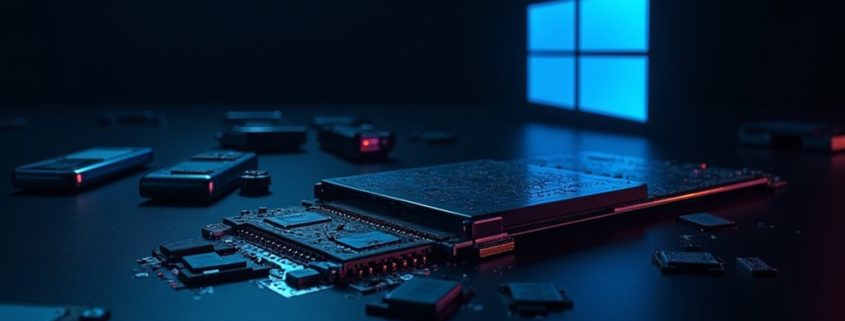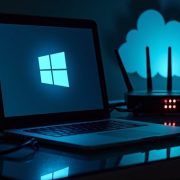Windows 11 KB5063878 Update Linked to Disturbing SSD Data Failures—Microsoft Scrambles for Answers
Microsoft’s latest Windows 11 security update KB5063878 is causing widespread SSD failures, with users reporting corrupted drives and data loss during intensive write operations. The issues primarily affect high-capacity drives from Seagate and Samsung, particularly the 990 Pro model. As Microsoft denies direct links between the update and failures, they’re investigating alongside SSD manufacturers. Tech forums are buzzing with users sharing workarounds, as the digital infrastructure community seeks permanent solutions to this concerning development.

A troubling wave of SSD failures has emerged following Microsoft‘s mandatory Windows 11 security update KB5063878, leaving users worldwide grappling with disappearing drives and corrupted data. The update, released on 12 August 2025, has triggered widespread reports of storage devices becoming inaccessible or corrupted, particularly during intensive write operations exceeding 50GB on drives operating at over 60% capacity.
The symptoms read like a tech horror story: drives suddenly showing as RAW, mysterious I/O errors popping up like uninvited guests, and SSDs playing hide-and-seek in BIOS. Users from Japan to Silicon Valley have reported their high-capacity drives, including premium 8TB Seagate and Samsung models, falling victim to what appears to be a perfect storm of software and hardware interactions. The Samsung 990 Pro SSDs have been particularly vulnerable to these issues, with users reporting frequent system crashes shortly after boot.
Microsoft’s response has been a masterclass in corporate caution. In spite of mounting evidence from users worldwide, the tech giant maintains there’s no direct connection between KB5063878 and the reported failures. Their investigation, conducted alongside SSD controller manufacturers like Phison, has yet to replicate the issue in controlled testing environments – a bit like searching for a digital needle in a very large, very complex haystack.
The plot thickens with the update’s removal process proving nearly as problematic as its installation. Users attempting to roll back the changes find themselves manoeuvring through a maze of technical requirements, including the need to disable Windows Sandbox – a hurdle that’s left many IT professionals scratching their heads and reaching for their backup drives. Initial reports suggest that rare race conditions are at the heart of these SSD failures, affecting only a small subset of users under specific circumstances.
But the SSD saga isn’t playing out in isolation. KB5063878 has become something of a digital troublemaker, with reports of OBS software glitches and MSI installer failures adding to its rap sheet. University IT departments have found themselves particularly challenged, as secondary installers for essential applications like AutoCAD refuse to play nice with the update.
The community’s response has been swift and practical, if not entirely Microsoft-approved. Tech forums are buzzing with recommendations to pause updates or uninstall KB5063878 entirely, as discussions about thermal throttling and workload management have become hot topics among affected users.
The issue seems to manifest most dramatically during heavy write operations, suggesting a possible race condition that turns routine storage tasks into data-threatening events. As Microsoft continues its investigation, the incident serves as a stark reminder of how vulnerable our digital infrastructure can be to seemingly minor software changes.
For now, users are left walking a tightrope between security updates and system stability, as Microsoft races to untangle what could be one of the more peculiar chapters in Windows 11’s growing pains.
Final Thoughts
As concerns grow over SSD failures linked to Microsoft’s recent Windows 11 update KB5063878, users are urged to back up their important files and consider deferring the update. This situation highlights the potential risks that routine system updates can pose to data integrity. If you’re experiencing issues or need assistance with your PC, PC Repairs Ipswich is here to help. Don’t hesitate to reach out to us for expert support. Click on our contact us page to get in touch today!











